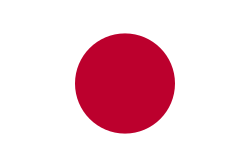Top Qs
Timeline
Chat
Perspective
Japan at the Olympics
Sporting event delegation From Wikipedia, the free encyclopedia
Remove ads
Japan first participated at the Olympic Games in 1912, and has competed at almost every Games since then. The nation was not invited to the 1948 Games after World War II, and was part of the American-led boycott of the 1980 Summer Olympics in Moscow.
Since its first (ultimately canceled) bid in 1940, Japan has hosted the Olympics four times: in 1964, 1972, 1998, and 2021 (originally 2020). Each occasion coincided with critical turning points in Japan’s domestic development or global standing. The 1964 Tokyo Olympics were a pivotal moment in Japan’s postwar recovery, offering a visual spectacle of modernization that included the unveiling of the Shinkansen bullet train and the rapid reconstruction of Tokyo’s infrastructure. The event symbolized Japan’s reintegration into the international community after its defeat in World War II, marking its transition from a militaristic empire to a peaceful economic power aligned with Western liberal democracies.[1]
The Olympics’ utility as a crisis-response tool became even more evident with the 1998 Nagano Winter Olympics, held in the shadow of the Asian Financial Crisis. While neighboring countries like South Korea and Thailand struggled with IMF-imposed austerity, Japan sought to distinguish itself as a stable economic force capable of weathering regional turmoil.[2] The Nagano Olympics not only aimed to boost tourism and consumer confidence but also featured performances by Western orchestras and artists, symbolizing Japan’s cultural connectivity and shared values with the West.
The decision to pursue the 2020 Tokyo Olympics—despite the enormous public cost and eventual delay due to COVID-19—reflected similar motivations. Government officials emphasized the Games as a necessary stimulus for Japan’s sluggish economy and an opportunity to showcase its technological sophistication and preparedness in crisis.[2]
Japan won its first medals in 1920, and its first gold medals in 1928. Japanese athletes have won 542 medals at the Summer Olympic Games (except art competitions), with the most gold medals won in judo, gymnastics, wrestling, and swimming, as of the end of the 2020 Summer Olympics. Japan has also won 76 medals at the Winter Olympic Games. Its most successful Olympics is the 2020 Games hosted in Tokyo.
The Japanese Olympic Committee was created in 1911 and recognized in 1912.[3]
Remove ads
Hosted Games
Japan have hosted the Games on four occasions, including the 2020 Summer Olympics (which was postponed to 2021 due to the COVID-19 pandemic):
Cancelled games
Unsuccessful bids
Remove ads
Medal tables
Medals by Summer Games
Host country
- Art comp. Art competitions (1912–1948) are not included in the medal table above, as they were non-sports events formerly part of the Olympic Games.[nb 1] Japan won a total of two art competition medals (2 bronze), both at the 1936 Summer Olympics.[6]
Medals by summer sport
Leading in that sport
Medals by winter sport
Leading in that sport
Remove ads
Medals in art competitions
In addition to its accomplishments in sport, Japan has also earned recognition in Olympic art competitions—one of the three non-sports events once included in the Olympic Games. The country won a total of two art competition medals (2 bronze), both at the 1936 Summer Olympics.[6] These events were part of the official Olympic program in seven Summer Games, from 1912 to 1948. In 1952, the International Olympic Committee (IOC) formally discontinued all non-sport events (including art competitions), as well as awards for feats (such as alpinism and aeronautics). These were subsequently removed from official national medal counts.[7][nb 1]
Medalists
Youth Games medal tables
Medals by Summer Youth Games
Medals by Winter Youth Games
Medals by summer sport
Leading in that sport
Medals by winter sport
Leading in that sport
Remove ads
Hosted Olympics mottos
Summarize
Perspective
1964 Summer Olympics
The 1964 Summer Olympics marks Japan hosting its first Olympic Games. It was held in the capital Tokyo. It was also the first time it was held in Asia.
1972 Winter Olympics
The 1972 Winter Olympics marks the second time Olympics held in Japan. It was the first time held outside Tokyo because it was held at Sapporo.
Because of its snowy geographic, Japan would hosts its first Winter Olympics. It was also the first winter olympics held in Asia.
1998 Winter Olympics
The 1998 Winter Olympics was the third time Japan hosted the Olympics and second for Winter. Was held at Nagano. The motto of the games is Coexistence with Nature (自然との共存)
2020 Summer Olympics
The 2020 Summer Olympics marks the fourth time the Olympics was held in Japan. It was the first time it was held one year late (2021 instead of 2020) following the worldwide COVID-19 pandemic. It marks the second time it was held in Tokyo. Its motto was United by Emotion (感動で、私たちはひとつになる). During that time, only the English version was used.
This motto appeals that "Sports enable us to overcome different environments and become one world through emotions such as joy and excitement that the athletes' competitive performances bring together in our hearts."[10]
Remove ads
See also
Notes
- In 1952, art competition medals, as well as the gold medal awards for feats in alpinism and aeronatics, were removed from the official national medal counts.[7] Only since 2021 have they been officially listed again by the IOC in the medal tables and respective NOC profile on its website. Japan won a total of two art competition medals (2 bronze), both at the 1936 Summer Olympics.[6]
References
External links
Wikiwand - on
Seamless Wikipedia browsing. On steroids.
Remove ads

